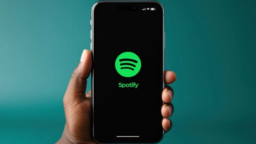Sources in Asia have confirmed to MBW that Warner Music Group has filed an injunction against Spotify in a court in Mumbai. Give yourself a moment to take that in: one of the three major music companies is suing the largest streaming service in the world for copyright infringement.
Spotify’s launch in India has been a long time coming.
In Q1 last year, it opened an office in Mumbai, with reports suggesting it was hiring 300 employees. Rumors subsequently circulated about the service launching in India throughout the latter half of 2018. And then, last month, a note in Spotify’s own terms and conditions made clear it was preparing to open up its platform to a potential 1.3bn new customers. The big day was January 31.
When that date came and went, it was clear something was up. Now, we’re finally getting a glimpse into some of Spotify’s issues – and its fraught negotiations with one of the largest music rights-holders on earth.
Bottom line, publicly-traded Spotify appears to be in an uncomfortable spot.
We don’t have all the details yet, but when we contacted Warner for an explanation about the injunction – first revealed by the Bloomberg Terminal this morning – a spokesperson gave us the following statement:
“After months of negotiations, Spotify abruptly changed course and has falsely asserted a statutory license for our songwriters’ music publishing rights in India. We had no choice but to ask an Indian court for an injunction to prevent this. It’s our goal to hammer out a deal that works for everyone. We hope this is just a speed bump in the expansion of our long and successful global partnership.”
“After months of negotiations, Spotify abruptly changed course and has falsely asserted a statutory license for our songwriters’ music publishing rights in India.”
Warner Music Group statement
“Speed bump” seems like a carefully chosen phrase. Warner may be drawing a line in the sand, but it’s obviously keen to play down what could be conceived as aggressive legal move. That, in turn, might have something to do with the fact that Spotify helped Warner Music Group hit revenues of $4bn for the first time last year.
We have a lot of questions about this one and are reaching out to Spotify for their side of the story.
It’s unlikely Warner would do a deal for recorded music but not simultaneously for music publishing; or vice versa. (These days, the majors typically negotiate both sets of rights alongside one another in order to get the best result possible.) That must mean Spotify, by reaching for this “statutory license”, is trying to figure out a way to launch with Warner’s publishing repertoire, but without a license for its recorded music.
Is Daniel Ek‘s green machine really pressing ahead in India without the likes of Ed Sheeran, Bruno Mars or Cardi B? What does this mean for its prospective deals with Universal and Sony recording artists?
Warner’s publishing rights are managed by Warner/Chappell, whose clients include the likes of Jay Z and Katy Perry, and also songwriters like Justin Tranter and Tayla Parx who’ve written massive hits for everyone from Ariana Grande to Maroon 5. Even in India, where local repertoire dominates, a service just wouldn’t be competitive without Warner/Chappell’s songs.
Senior sources in the Indian music industry are a little spooked, to say the least. One told us this morning: “Word is getting out about this, and there’s almost panic here in India about the possibility that Spotify would force through a statutory license for these Warner publishing rights. There’s a feeling that would set a very dangerous precedent for the whole market.”
“Word is getting out about this, and there’s almost panic here in India about the possibility that Spotify would force through a statutory license for these Warner publishing rights.”
Indian music industry source
While Warner and Spotify have been unable to reach a deal for India, sources say that Sony and Universal are close, if not already signed. It’s obvious to anyone who’s following this stuff why Warner may be the biggest hold-out.
WMG CEO Steve Cooper (pictured, main) has been very vocal about his concerns about Spotify’s falling global ARPU (average revenue per user).
Last month, on Warner’s quarterly earnings call, Cooper said, “In our view, the value of music should always be treated as independent from the choices that streaming platforms make about the pricing of their services and their customer acquisition strategies.”
Cooper’s point is that Spotify decides where it launches and what the price is. He’s saying that it’s Spotify’s choice to introduce a service priced at $9.99 in the U.S. for, say, the equivalent of $1.40 in India. He just doesn’t think Warner should have to take a proportionate cut in its rates.
Truth is, if Cooper wanted to prove a point, then India would be the place to do it. In a country where none of the majors are particularly big, Warner’s market share is the smallest by some way – so Cooper’s gamble is a calculated one.
Even so, with reports today that nearly 150 million people in India are already using music streaming services, the competition is heating up. Spotify may decide to launch without Warner, betting that it can carry the day without one of the ‘Big Three’.
Who’d have thought that licensing discussions in India could contain this much drama?
Spotify’s rumored launch in Russia, its next major territorial target, will make a fascinating sequel…Music Business Worldwide




